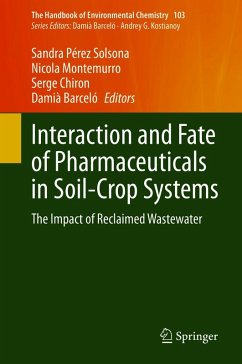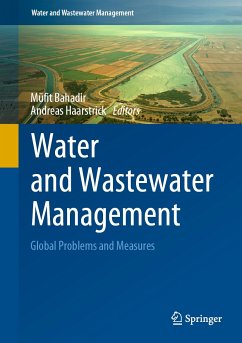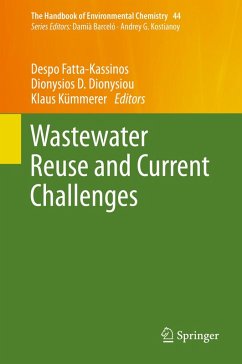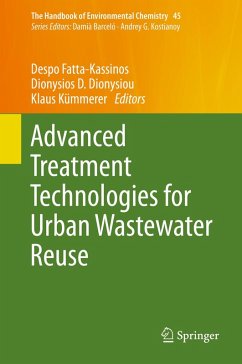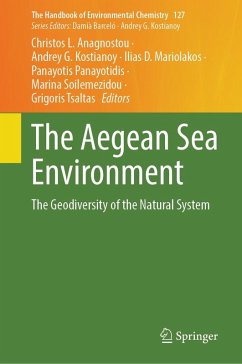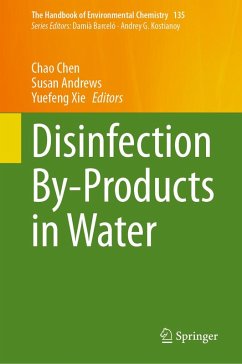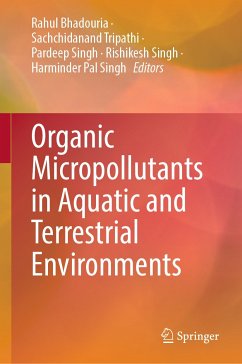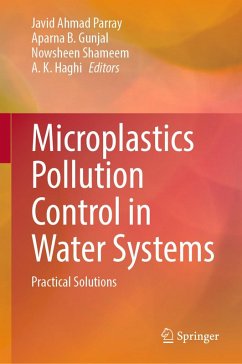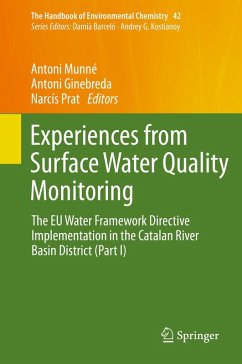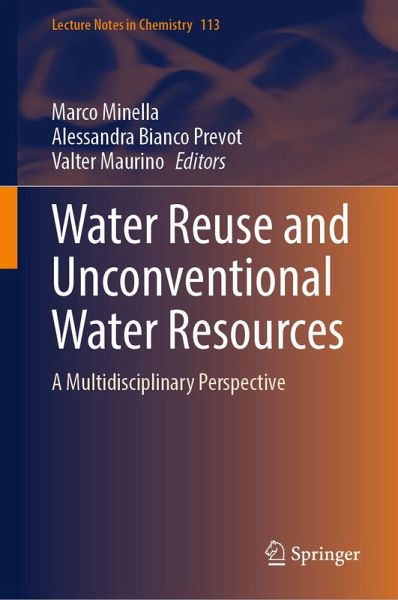
Water Reuse and Unconventional Water Resources (eBook, PDF)
A Multidisciplinary Perspective
Redaktion: Minella, Marco; Maurino, Valter; Bianco Prevot, Alessandra
Versandkostenfrei!
Sofort per Download lieferbar
144,95 €
inkl. MwSt.
Weitere Ausgaben:

PAYBACK Punkte
72 °P sammeln!
This book covers the latest technologies and challenges for water reuse and unconventional water resources. It presents a comprehensive overview of water reuse as a key approach toward a sustainable solution, and it offers an important multidisciplinary perspective. The book brings together topics spanning from water treatment technologies to social expectation and acceptance, from integrated decisional platforms for policymakers to industrial symbiosis, and from environmental sustainability to legislation aspects. It appeals to both academic and non-academic lecturers, being a valuable resour...
This book covers the latest technologies and challenges for water reuse and unconventional water resources. It presents a comprehensive overview of water reuse as a key approach toward a sustainable solution, and it offers an important multidisciplinary perspective. The book brings together topics spanning from water treatment technologies to social expectation and acceptance, from integrated decisional platforms for policymakers to industrial symbiosis, and from environmental sustainability to legislation aspects. It appeals to both academic and non-academic lecturers, being a valuable resource for teaching and research.
Divided into 4 parts, the book begins with an introduction to water quality and quantity evaluation and the opportunities and challenges of conventional and unconventional water sources. In the second part of the book, readers will learn about the established and innovative strategies for water reuse, including the recent advances in water and the analytical challenges. In Part 3, expert contributors examine policies, plans and regulations for water reuse, with a focus on the European Union Regulation 2020/741. The final part of this book offers a perspective on wastewater reuse in practice, including several case studies of successful water reuse initiatives.
Given its breadth, this book is a valuable resource for PhD students, post-doc researchers, and professionals from water utilities and diverse water user sectors such as agriculture and industry. The book caters to those seeking to deepen their knowledge and contribute to innovative solutions for sustainable water reuse. It also supports and advances the UN's sustainable development goals, in particular SDG6 (Clean Water and Sanitation).
Chapter 17 Water Reuse in the European Union: Risk Management Approach According to the Regulation (EU) 2020/741 in this book is available open access under a CC BY 4.0 license at link.springer.com.
Divided into 4 parts, the book begins with an introduction to water quality and quantity evaluation and the opportunities and challenges of conventional and unconventional water sources. In the second part of the book, readers will learn about the established and innovative strategies for water reuse, including the recent advances in water and the analytical challenges. In Part 3, expert contributors examine policies, plans and regulations for water reuse, with a focus on the European Union Regulation 2020/741. The final part of this book offers a perspective on wastewater reuse in practice, including several case studies of successful water reuse initiatives.
Given its breadth, this book is a valuable resource for PhD students, post-doc researchers, and professionals from water utilities and diverse water user sectors such as agriculture and industry. The book caters to those seeking to deepen their knowledge and contribute to innovative solutions for sustainable water reuse. It also supports and advances the UN's sustainable development goals, in particular SDG6 (Clean Water and Sanitation).
Chapter 17 Water Reuse in the European Union: Risk Management Approach According to the Regulation (EU) 2020/741 in this book is available open access under a CC BY 4.0 license at link.springer.com.
Dieser Download kann aus rechtlichen Gründen nur mit Rechnungsadresse in A, B, BG, CY, CZ, D, DK, EW, E, FIN, F, GR, HR, H, IRL, I, LT, L, LR, M, NL, PL, P, R, S, SLO, SK ausgeliefert werden.



